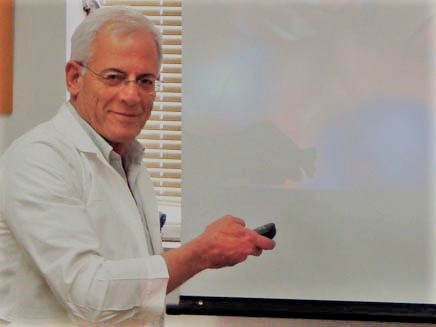
Hebrew University Professor Amiram Goldblum’s Discovers 27 New Molecules with Significant Therapeutic Potential
Professor Amiram Goldblum and his team at the Hebrew University of Jerusalem’s Institute for Drug Research have discovered 27 new molecules. These molecules all activate a special protein called PPAR-delta and have the potential to treat fatty liver disease, obesity, diabetic nephrotoxicity, and to heal wounds.
News of these findings was published on 31 January, 2019 in Scientific Reports, a Nature journal, and was made possible thanks to a new, award-winning algorithm that Goldblum’s team developed. This algorithm sifted through a database of 1.56 million molecules and picked out 27 with a strong therapeutic potential, as determined by biologists at the Novartis Genomic (GNF) Institute in San Diego.
To date, these new molecules are undergoing pharmaceutical evaluations to treat two main health conditions. The first is Fatty Liver Disease, also known as NASH (Non-Alcoholic SteatoHeptatis). This disease currently has no cure and is a leading cause of liver cancer in the Western world. The second is obesity. PPAR-delta activation has the potential to increase physical endurance and trim waistlines by getting muscle cells to burn more fat. Future evaluations will hopefully include testing treatments for improved wound healing, and to prevent kidney toxicity in diabetics.
Professor Goldblum is cautiously optimistic about these findings. “With such a large group of highly active molecules, there is a high probability to find treatments for several common diseases. However, we should wait till all the experiments are done before we get our hopes up too high,” he shared.
To date, there is much pharmaceutical interest in Goldblum’s new molecules. Integra Holdings, Hebrew University’s biotech company, determined that 21 of the 27 have the potential to reach pharmaceutical success, especially as a possible cure for Fatty Liver disease. Additionally, Israel’s Heller Institute of Medical Research is currently testing PPAR-delta’s physical endurance properties on mice. Goldblum predicts that in a few years we will hopefully be seeing several of these molecules in the pipeline for clinical studies on humans.
